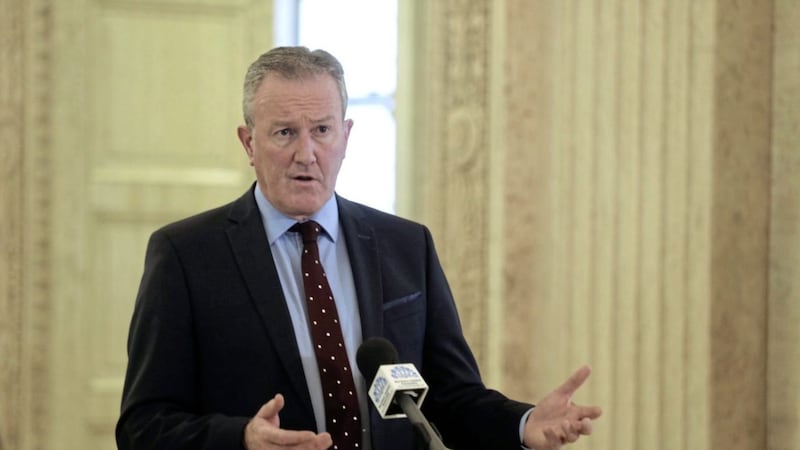I almost had to sit down and calm myself when I read Wednesday’s Irish News headline: ‘Give MLAs power to tax’.
To be honest, it really wouldn’t have mattered what words had followed ‘to’ in that headline, because anything which starts with ‘Give MLAs power to…’ is guaranteed to have me searching for a seat and a comforting beverage.
In 1998 a majority endorsed an agreement which set out a whole raft of powers for our future legislators. In assembly elections in 1998, 2003, 2007, 2011, 2016 and 2017 we gave 108 MLAs (reduced to 90 from 2017) successive mandates to exercise those powers and make Northern Ireland a better place in terms of employment, education, health, housing, the economy, legacy et al. And yet, almost a quarter of a century later, opinion poll evidence suggests that a majority of the people who should now be benefitting from post-1998 governance do not, in fact, have any confidence in the assembly, the executive or the MLAs.
Paul Johnson, chair of the Fiscal Commission for Northern Ireland (which produced the report saying the assembly is ready for the devolution of tax-raising powers) did admit, when he briefed finance minister Conor Murphy on Tuesday, that the devolution of the powers “does come with real risks”.
That’s what I call an understatement. Why would you want to give powers like that to an assembly whose key parties seem congenitally incapable of reaching a consensus on almost everything else? And how do you expect to reach agreement on anything to do with tax-raising when the mandatory coalition is composed of everything from neo-Thatcherites to fossilised Marxists? It would be like me allowing my children to decide how we would spend the household budget for a month: and then what to do when we entered the second week with nothing left.
Democratic governments—either formed by one party or a voluntary coalition—reach agreement on their spending priorities and then raise and allocate funding. That process is immeasurably more difficult when the coalition is mandatory; when there is a blocking mechanism at the heart of the structure; and when there is a long-established process of governing by individual silo rather than in accordance with a programme for government which the entire executive, from day one, has taken full and collective responsibility for.
Speaking after he had been briefed by Mr Johnson, Conor Murphy said: “If we are to realise the benefits of devolution it is important that the appropriate financial and administrative arrangements are in place. Getting the practicalities right is vital if we are to take full advantage of more taxation powers and I’m glad that the commission will consider those practicalities in more detail.”
I don’t want to rain on Mr Johnson’s parade too early, but I have to tell him (although I suspect he and the other members of the Fiscal Commission will know this already) that Mr Murphy has used the same form of words with which every other minister greets almost every other report from every other commission or committee. Let’s face it, we’ve had since 1998 to underpin the benefits of devolution by ensuring ‘the appropriate financial and administrative arrangements are in place’ for very other arm of existing devolution here. And yet we’re still waiting.
The mandate for the present assembly ends on Monday 28: which is also, to the very day, 50 years since the Northern Ireland Parliament was replaced by direct rule. Whether or nor the assembly elected on May 5 ever meets is a question which can’t be answered one way or the other, with any degree of certainty. This assembly, elected in March 2017, struggled for survival. It didn’t meet for almost three years and ends its mandate without an executive in place.
The results—which we’ll know in full by May 7—will determine whether it will be rebooted. A success for the DUP—built around its present anti-protocol stance—means it could yet be returned as the largest party, but with Jeffrey Donaldson unable to accept the post of first minister if Boris Johnson doesn’t shift on the protocol.
He will also have a problem if Sinn Féin takes over as lead party, particularly if Michelle O’Neill hails it as a victory for Sinn Féin’s stance on a border poll. If, on the other hand, Sinn Féin doesn’t do as well as opinion polls suggest, then the leadership will want guarantees on a number of issues before it agrees to re-enter an executive with the DUP. Either way, it looks like we’re in for a long-drawn-out process of tic-tac negotiation: ending up who knows where.
It would be much simpler, to be honest, if the UUP and SDLP ended up as the lead parties because, if nothing else, it would surprise everyone, change the dynamics (in a good way) and maybe, just maybe, force the DUP and SF to get off their high horses and reflect on their failings.








